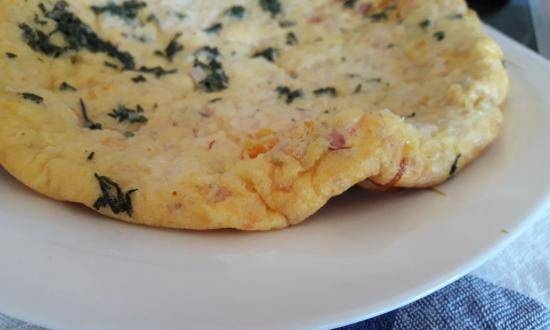|
 Social problems, problems of money and everyday life are so closely intertwined that an attempt to pull one out of this tangle and give "reasonable" advice on how to solve it would be, at least, dishonest. The economic state of society today is complex and unstable. Social problems, problems of money and everyday life are so closely intertwined that an attempt to pull one out of this tangle and give "reasonable" advice on how to solve it would be, at least, dishonest. The economic state of society today is complex and unstable.
But then does it make sense to touch on this topic? Certainly. Because there is an enduring moment in it that does not depend on social cataclysms: the moment of morality.
Money is scarce in different ways. Someone - to change the annoying "Zhiguli" for a foreign car. Another to buy a spare pair of winter boots. The third is to purchase new boots to replace those that have worn out. And people experience this different lack in different ways: as grief, humiliation, a burdensome burden, an annoying complication, or as the cause of all failures in life. But will we get rid of such worries if the contents of wallets triple, multiply tenfold along with the opportunities of the market that provides demand? The history of mankind gives an unequivocal answer to this question: no, for there is no limit to the growth of needs ... The search for deliverance remains only within oneself.
How to reduce the pressure of material difficulties?
First condition. First of all, we will exclude the second word from this so familiar combination, replace it with another: material given. Do not rush to be ironic: they say, horseradish radish is not sweeter. Here is your given figure. You can somehow influence her: lose weight, gain weight, hide or flaunt her advantages and disadvantages. But fashion models (or, let's say, nature for the second "Danae") will not come out of you. What is given is given. Or, for example, winter outside. Let's dress out of season - with a sheet, try to bike a ride - we'll get stuck in snowdrifts ... That is, going against the given is like breaking through a wall with your forehead. As for the figure or winter, our psyche quite easily tunes in to calmly accepting these realities, helps, if necessary, to bypass sharp corners, sticking out of them, to maintain dignity and an even mood. Do you think the comparison is wrong? Don't tell me that "the wrong appearance" or "the wrong weather" causes dramas no less than a lack of funds. And this happens exactly when the psyche fails and pushes the person “with his head against the wall” ... In other words, when we do not want to correlate our desires and aspirations with objective reality and the possibilities inherent in it.
The same is true in the monetary sphere of life. Here is our family "parish", and here is what remains after the minus of the urgently needed expenses. If, comparing the balances of money with our own needs, we clutch at our heads, our hearts, or simply freeze, disgusted, then we are facing material difficulties. The one who perceives the situation as a given behaves differently. He, like a tailor, applies to a piece of fabric (the "roll" of our needs can be infinitely long!) "Pattern" of real possibilities - and cuts off the excess. At the same time, his state of health is different than that of a person who is always struggling with difficulties, because, from experiencing this struggle, there is no rest, except in sleep, there is no discharge, except in "unreasonable" quarrels with loved ones or prolonged stress.
The attitude to one's material potential according to the principle "give us our daily bread this day" not only balances our state of mind. Paradoxical as it may seem, it "clears" the horizons, allows you to see the real perspective, gives strength to somehow influence the given. After all, perhaps, nothing hits a person so hard as the lack of perspective.
Second condition. Learn to be "Croesus for a minute." Whether you use this "science" or not, time will tell and your well-being, but master it.(Many residents of capital cities, not taking advantage of the fruits of cultural life in them, claim that they are "warmed" by the very opportunity to plunge into it at any moment, if the need arises.) Given the harsh economic reality of the family, it is a "warming", stress-relieving means can serve a minute in the role of Croesus, the legendary king of Lydia, who possessed untold riches. "We can't even afford this!" - this formula often defines the range of our financial capabilities (or impossibilities). But you decide and - excuse me. For each family, such a waste "over the limit" can be expressed in different ways: for some it will be a trip with the whole family to St. Petersburg or Kizhi, for others - a family lunch in a restaurant, for others - a kilogram of overseas fruits ...
"What is there to learn here," you say, "is it great wisdom to waste money?" I repeat: the task of the "Croesus minute" is psychological relief, which means, on the one hand, it is necessary to prepare oneself for not regretting, not getting upset later, not wondering how much benefit the family would benefit from a reasonable, rational spending of the disappeared amount. On the other hand, a minute is a minute, you need to be able, as they say, to stop in time.
Conditions three and four. Look for self-reliance and earning opportunities that are acceptable to you. Self-sufficiency is not only your own K garden, vegetable garden, but the ability to sew, knit, tinker. You can do a lot in everyday life with your own hands if your hands are skillful. This will not only allow you to significantly save family money, but will favorably distinguish your home and your appearance from the "consumer goods" standards.
Now the possibility of earning extra money for people has increased significantly. However, many of us are in no hurry to use it. The reasons for this - K inertia, inability to manage their time, a negative attitude towards some in the types of work. Here's how it turns out: the eternal K truth that only unearned, dishonest money is shameful, and today requires proof.
The last condition. Don't let material issues dominate the relationship between you as family members. This is the reef that more than one marriage union has crashed on. Protect yours. Let the conviction, born of the purity and strength of someone's feelings, be preserved in your soul: "With dear heaven and in a hut."
And now, perhaps, you can count. Economist L. Volnyh will help us in this: “Learning to keep account of family money is not difficult at all. It's important ... to accustom yourself to keeping track of them regularly. It may seem that such an occupation is within the power of only a pedantic and tight-fisted biscuit. This is a misconception. Home economics, when taken creatively, presents you with many interesting challenges that require a wide variety of knowledge and skills.
Imagine yourself as, say, the director of a small but extremely important business. Your first task is to distribute a strictly fixed amount so that the farm not only works optimally, evenly and calmly, but also has a certain "margin of safety" in case of extreme circumstances. We assure you that it is far from easy to immediately find the right option that is right for your business, sorry, for your family. In addition, pay attention to a significant difference: the enterprise produces industrial products, the “products” of the family are much more complicated. This includes the upbringing of the younger generation, and the replenishment of strength for further work, and the spiritual improvement of all family members, and many more important social and everyday processes.
 The budget is the foundation, the starting point of the home economy. Formally, it is expressed in planning income and expenses for a precisely defined period of time. It should be composed so that the amount of income (that is, all types of money receipts to the family) does not exceed the amount of expenditure. The more modest the budget, the stricter it is to observe it. The budget is the foundation, the starting point of the home economy. Formally, it is expressed in planning income and expenses for a precisely defined period of time. It should be composed so that the amount of income (that is, all types of money receipts to the family) does not exceed the amount of expenditure. The more modest the budget, the stricter it is to observe it.
Admit it, often after your paycheck, you first run to the store, in the hustle and bustle you do numerous purchases and only then, most often by necessity, you begin to estimate the remaining funds and future expenses. It is much wiser to plan your actions in advance.
First of all, consider the constant payments: rent, garden or nursery fees, loan payments, etc. If possible, make these payments immediately. Next, set aside funds for mandatory payments, the amount of which may fluctuate within certain limits. It includes payments for gas and electricity, the cost of maintaining a subsidiary farm, the estimated amount for food for the family, the cost of cultural and household needs. It is convenient to divide this money into expense items and put it in separate envelopes.
The remaining money, let's call it conditionally free, can be used for large purchases. But before committing those, once again do a simple arithmetic operation: subtract the aforementioned mandatory payments from the total amount of income. If the balance is less than the amount required for the purchase, we do not recommend increasing it by cutting other budget items. Such a "cunning" maneuver is actually short-sighted. It is much wiser to set aside free funds in a savings bank, so as not to discreetly spend them on petty whims. You will soon see that even small deposits accumulated over a certain period of time make it easy and painless for the budget to acquire the necessary things.
It is advisable to divide the money allocated for food into equal amounts according to the number of days during which they will be spent. Knowing how much you can spend per day, you do not run the risk of getting into financial difficulties. If you do not make groceries every day, then increase the amount calculated for the day seven times. You can dispose of the funds received in the coming week at your discretion.
As you can see, there are no secrets and difficulties in home bookkeeping. Surely many of you intuitively have repeatedly resorted to her help. Now you put it on a conscious basis. At first, it will be unusual to take into account every purchase, because we immediately forget about many little things. We advise you to record expenses immediately, or at the end of the day as a last resort. Imperceptibly, you will learn to spend only a few minutes a day on this procedure. "
Sashina E. Yu. ABC of Housekeeping
|
 Social problems, problems of money and everyday life are so closely intertwined that an attempt to pull one out of this tangle and give "reasonable" advice on how to solve it would be, at least, dishonest. The economic state of society today is complex and unstable.
Social problems, problems of money and everyday life are so closely intertwined that an attempt to pull one out of this tangle and give "reasonable" advice on how to solve it would be, at least, dishonest. The economic state of society today is complex and unstable.






